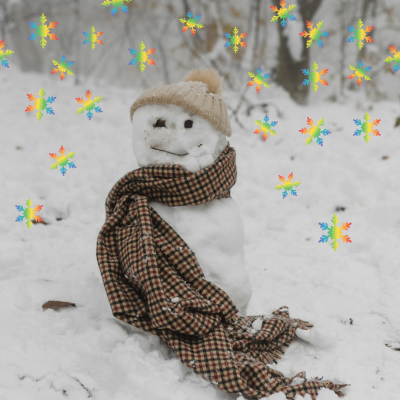As the days draw shorter, the sun gets low in the sky and the weather turns cold, our pace of life can change, and with it our outlook. Many of us will have had this sense of ‘the winter blues.’
For some people, the effects can be really heavy and we’d consider them to have clinical depression. We call this Seasonal Affective Disorder (SAD). It’s estimated that SAD affects up to 3% of the population. If you have depression that returns around the same time of year for several years, consider discussing this with your GP.
Some of the signs you might notice include:
– Low mood – can show up as sadness, negativity, or just ‘numbness’
– Lack of energy and/or motivation
– Trouble concentrating
– Sleep problems (too much, too little, or at the ‘wrong’ times)
– Overeating – like a ‘bear getting ready for winter’
– Increase in addictive or harmful behaviours
– Withdrawing from others (socially, and/or sexually etc.)
– Lowered immune system
Some of these seem so closely related to our experience of winter time, that we don’t even stop to notice them. But there are things you can do, to help. For example:
– Get as much daylight as possible. Spend time outdoors
– Consider getting a ‘light-box’ sun lamp
– Make sure you’re eating a balanced, healthy diet – at regular times!
– Try to get enough rest – go to bed at a regular time
– Avoid screen use in at least the last hour before bed
– Build in some ‘me time’ into your life doing things you enjoy
– Take a vitamin D supplement – we all need extra during the winter, because we can’t produce enough of it in our bodies
– Try to adopt a simpler, quieter pace of life in the winter, if that’s what your body needs
You’ll see that some of these tips involve getting as much light as possible in the daytime – and avoiding bright lights and screens at night! That’s because we know that light plays a big part in SAD and ‘winter blues’. Just a few minutes in the morning of a very bright light, helps to regulate our levels of serotonin and melatonin. These hormones are involved with our mood and our sleep-wake cycle. Many people benefit from a ‘sun lamp’ or light-box – you should invest in one of at least 2,500 Lux of brightness, ideally one that’s ‘medically certified’. These needn’t be very expensive – you can buy them online from around £30.
Having good support around you can be useful when dealing with any depression. Consider reaching out to MindOut, or to others in your life. And being honest about how winter affects you can be liberating, too.
By Darren Flint, Counselling Coordinator (he/she/they)

